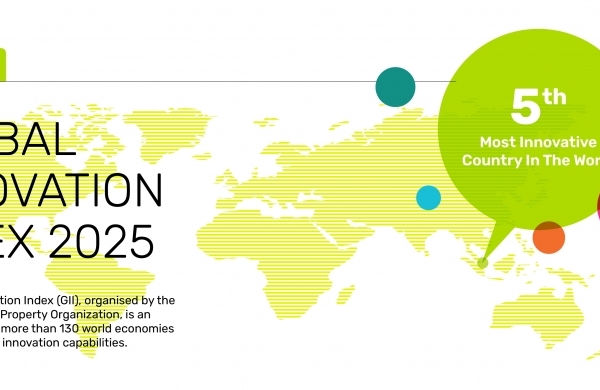Did not receive verification mail? Please confirm whether the mailbox is correct or not Re send mail

IPR Daily
- 2022-05-13 16:22:43
TP Mazes and the Global Tax for Multinational Companies-Part 1
Please be noted that this article is the first part of the report, the second part could be seen here.
Google Inc is a very particular case in transfer pricing (TP) matters. This global tycoon reduced its taxes by $3.1 billion from 2007 to 2010 by transferring most of its offshore profits through Ireland and the Netherlands to Bermuda.
Google’s strategy helped reduce its foreign tax rate to 2.4%, the lowest of the top five US technology companies by market capitalisation. It also shifted €34 billion in profits to the tax haven of Bermuda between 2015 and 2018, as the tax rate there is 0%.
The Dublin subsidiary, which employs nearly 2000 people and sells advertising throughout Europe, the Middle East, and Africa, has more than tripled its workforce since 2006, which is credited with nearly 90% of Google’s sales abroad, which amounted to $12.5 billion in 2008.
In the US, the corporate income tax rate is 35%; in the UK, Google’s second-largest market in revenue, it is 28%. Google, the owner of the world’s most popular search engine, uses a strategy that has gained acceptance among companies such as Facebook Inc. and Microsoft Corp.
The strategy uses several advantages, such as low Irish income tax (10% at that time, 12.5% currently) and the reduced withholding advantages of the European Community. Profits end up in a tax haven that does not levy any tax on corporations. The Bermuda offices are domiciled at the law firm offices of Conyers, Dill & Pearman at Clarendon House, located on Church Street in Hamilton, Bermuda.
According to information provided by IRS, Google’s effective global tax rate in 2016 was 19.3%, achieving this in part by transferring most of its international profit to the Bermuda-based entity. Google would have saved $3.7 billion through that transfer through this tax rate.
In previous years (2011), according to the newspaper ‘El Economista’ dated December 10 2012, Google avoided paying close to $2 billion in global income taxes by transferring more than $9 billion in profits to a company in Bermuda, almost double the total three years ago. The amount transferred to Bermuda is equivalent to 80% of Google’s total pre-tax profits for that year.
Google, the third-largest US technology company by market capitalisation, has not been accused of breaking tax laws. "Google’s practices are very similar to those of countless other global companies operating in a wide range of industries."
Ireland went from being one of the first states to ask for a bailout during the Great Recession to posting a spectacular growth rate of more than 25% a few years later. Analysts agreed then that the figure was inflated, and most of the distortion was due to the huge influx of foreign investment attracted by the generous tax advantages the country offered to multinationals.
The island had already embraced lax tax policies decades earlier it became a favourite destination for large corporations. In the 1980s, it promoted the creation of a special economic zone in Dublin, followed by the implementation of schemes to lower the tax bill of multinationals and the reduction of the legal corporate rate to 12.5% -which is still one of the lowest in the region, where the average is 22%-. In addition, Irish legislation allowed, through internal TP policies, a greater outflow of taxable capital to tax havens such as Bermuda.
"Google's practices are very similar to those of countless other global companies operating in a wide range of industries."
These measures led to an unprecedented economic boom, causing the country to be nicknamed the Celtic tiger in the 1990s, analogous to the expansion at the end of the 20th century of the so-called Asian tigers, such as South Korea and Singapore.
The starting point of this strategy was the transfer of rights and intellectual property (IP) rights to a company in Ireland for a reasonable price. Google transferred its search and advertising technology to Europe, the Middle East, and Africa from Google Holdings, Ireland. The arrangement was approved by the IRS under an advance pricing agreement (APA), overcoming the initial TP barrier by the search for IRS approval.
The system used consists of creating two companies, one based in European islands such as Ireland and the other in a tax haven as Bermuda. Thus, the profits obtained from IP that should be computed in other countries such as the US are first transferred to the Irish subsidiary and then redirected to havens such as Bermuda, as the Google's case.
The technique required two companies in Ireland: Google Holdings- Ireland, with administrative management in Bermuda (tax resident there), that owns the licenses to Google's IP rights. Google Ireland Ld sells worldwide advertising and collects advertising revenue, withholds a small percentage of the advertising revenue, and pays the balance in royalties to Google Holdings in the Netherlands. The copyright is tax-sheltered because Bermuda does not levy any corporate income tax.
Source: internationaltaxreview.com
Editor: IPR Daily-Selly
- I also said the two sentence
- Also you can enter 140words
 TOP IPR U.S. Lawyers 10 & Firms 10 Selection Officially Launched by IPR Daily
TOP IPR U.S. Lawyers 10 & Firms 10 Selection Officially Launched by IPR Daily WIPO Global Innovation Index 2025: China Enters Top 10
WIPO Global Innovation Index 2025: China Enters Top 10 Singapore ranks 5th in the 2025 Global Innovation Index; climbed two spots in Innovation Outputs
Singapore ranks 5th in the 2025 Global Innovation Index; climbed two spots in Innovation Outputs Federal Circuit lacks jurisdiction over award that doesn’t raise issue of patent law
Federal Circuit lacks jurisdiction over award that doesn’t raise issue of patent law


